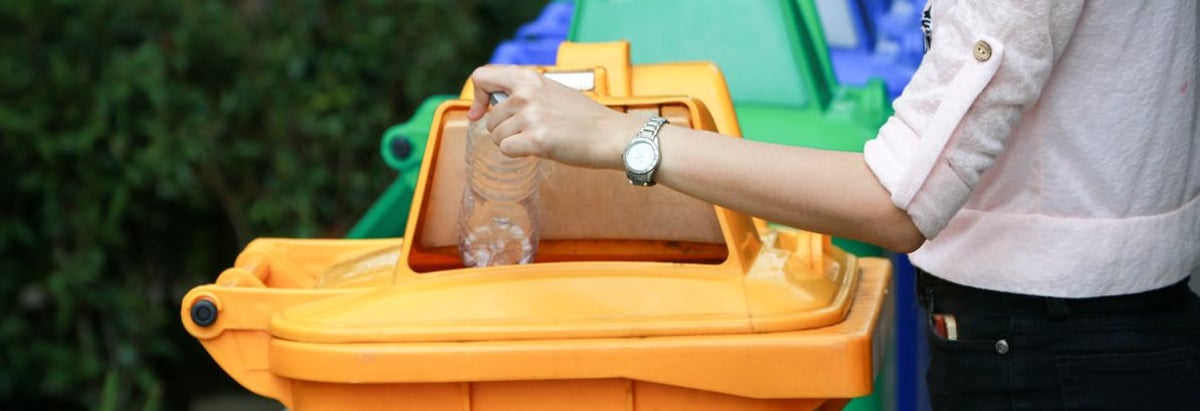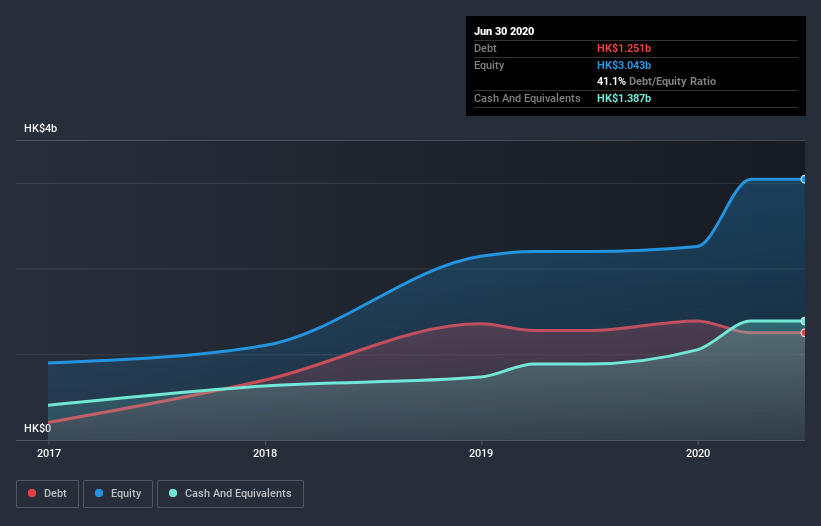- Hong Kong
- /
- Commercial Services
- /
- SEHK:3718
Is Beijing Enterprises Urban Resources Group (HKG:3718) Using Too Much Debt?

Legendary fund manager Li Lu (who Charlie Munger backed) once said, 'The biggest investment risk is not the volatility of prices, but whether you will suffer a permanent loss of capital.' So it seems the smart money knows that debt - which is usually involved in bankruptcies - is a very important factor, when you assess how risky a company is. Importantly, Beijing Enterprises Urban Resources Group Limited (HKG:3718) does carry debt. But the real question is whether this debt is making the company risky.
When Is Debt Dangerous?
Generally speaking, debt only becomes a real problem when a company can't easily pay it off, either by raising capital or with its own cash flow. Part and parcel of capitalism is the process of 'creative destruction' where failed businesses are mercilessly liquidated by their bankers. However, a more frequent (but still costly) occurrence is where a company must issue shares at bargain-basement prices, permanently diluting shareholders, just to shore up its balance sheet. Of course, the upside of debt is that it often represents cheap capital, especially when it replaces dilution in a company with the ability to reinvest at high rates of return. When we examine debt levels, we first consider both cash and debt levels, together.
Check out our latest analysis for Beijing Enterprises Urban Resources Group
What Is Beijing Enterprises Urban Resources Group's Debt?
The chart below, which you can click on for greater detail, shows that Beijing Enterprises Urban Resources Group had HK$1.23b in debt in June 2020; about the same as the year before. However, it does have HK$1.39b in cash offsetting this, leading to net cash of HK$160.5m.

How Healthy Is Beijing Enterprises Urban Resources Group's Balance Sheet?
We can see from the most recent balance sheet that Beijing Enterprises Urban Resources Group had liabilities of HK$1.70b falling due within a year, and liabilities of HK$998.7m due beyond that. On the other hand, it had cash of HK$1.39b and HK$1.22b worth of receivables due within a year. So its liabilities outweigh the sum of its cash and (near-term) receivables by HK$87.9m.
This state of affairs indicates that Beijing Enterprises Urban Resources Group's balance sheet looks quite solid, as its total liabilities are just about equal to its liquid assets. So it's very unlikely that the HK$8.42b company is short on cash, but still worth keeping an eye on the balance sheet. While it does have liabilities worth noting, Beijing Enterprises Urban Resources Group also has more cash than debt, so we're pretty confident it can manage its debt safely.
In addition to that, we're happy to report that Beijing Enterprises Urban Resources Group has boosted its EBIT by 61%, thus reducing the spectre of future debt repayments. When analysing debt levels, the balance sheet is the obvious place to start. But ultimately the future profitability of the business will decide if Beijing Enterprises Urban Resources Group can strengthen its balance sheet over time. So if you want to see what the professionals think, you might find this free report on analyst profit forecasts to be interesting.
Finally, while the tax-man may adore accounting profits, lenders only accept cold hard cash. Beijing Enterprises Urban Resources Group may have net cash on the balance sheet, but it is still interesting to look at how well the business converts its earnings before interest and tax (EBIT) to free cash flow, because that will influence both its need for, and its capacity to manage debt. During the last three years, Beijing Enterprises Urban Resources Group burned a lot of cash. While that may be a result of expenditure for growth, it does make the debt far more risky.
Summing up
We could understand if investors are concerned about Beijing Enterprises Urban Resources Group's liabilities, but we can be reassured by the fact it has has net cash of HK$160.5m. And we liked the look of last year's 61% year-on-year EBIT growth. So we don't have any problem with Beijing Enterprises Urban Resources Group's use of debt. The balance sheet is clearly the area to focus on when you are analysing debt. But ultimately, every company can contain risks that exist outside of the balance sheet. Consider risks, for instance. Every company has them, and we've spotted 2 warning signs for Beijing Enterprises Urban Resources Group you should know about.
If you're interested in investing in businesses that can grow profits without the burden of debt, then check out this free list of growing businesses that have net cash on the balance sheet.
If you’re looking to trade Beijing Enterprises Urban Resources Group, open an account with the lowest-cost* platform trusted by professionals, Interactive Brokers. Their clients from over 200 countries and territories trade stocks, options, futures, forex, bonds and funds worldwide from a single integrated account. Promoted
If you're looking to trade Beijing Enterprises Urban Resources Group, open an account with the lowest-cost platform trusted by professionals, Interactive Brokers.
With clients in over 200 countries and territories, and access to 160 markets, IBKR lets you trade stocks, options, futures, forex, bonds and funds from a single integrated account.
Enjoy no hidden fees, no account minimums, and FX conversion rates as low as 0.03%, far better than what most brokers offer.
Sponsored ContentValuation is complex, but we're here to simplify it.
Discover if Beijing Enterprises Urban Resources Group might be undervalued or overvalued with our detailed analysis, featuring fair value estimates, potential risks, dividends, insider trades, and its financial condition.
Access Free AnalysisThis article by Simply Wall St is general in nature. It does not constitute a recommendation to buy or sell any stock, and does not take account of your objectives, or your financial situation. We aim to bring you long-term focused analysis driven by fundamental data. Note that our analysis may not factor in the latest price-sensitive company announcements or qualitative material. Simply Wall St has no position in any stocks mentioned.
*Interactive Brokers Rated Lowest Cost Broker by StockBrokers.com Annual Online Review 2020
Have feedback on this article? Concerned about the content? Get in touch with us directly. Alternatively, email editorial-team@simplywallst.com.
About SEHK:3718
Beijing Enterprises Urban Resources Group
Operates as a waste management solution service provider in Chinese Mainland and Hong Kong.
Slight and fair value.
Market Insights
Community Narratives



